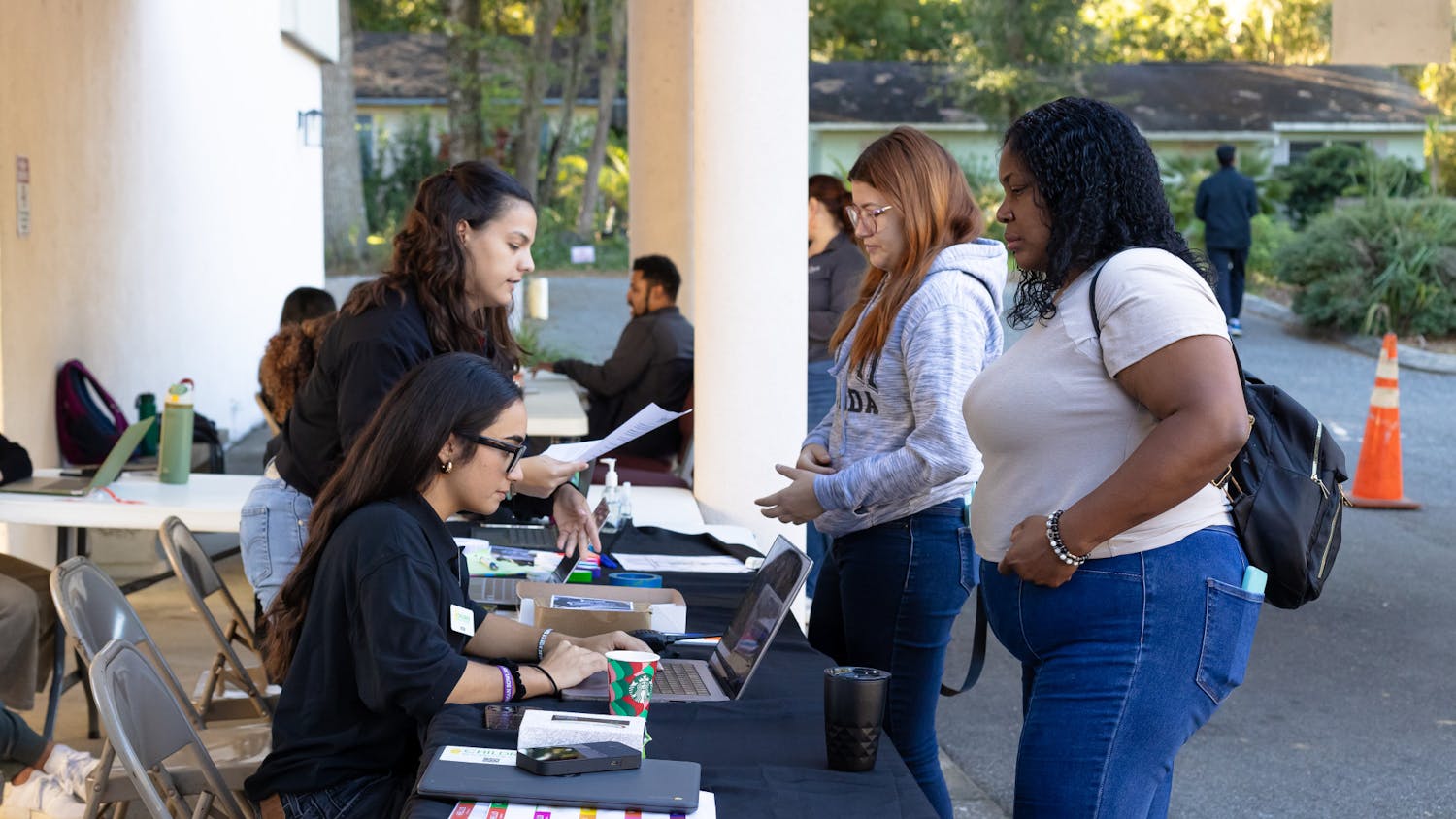Jewish and Muslim scholars and religious leaders spoke to UF students and faculty about the need for discussion between religious communities on Monday night.
The panel highlighted the necessity for Jews, Muslims and Christians to work together to achieve peace in their lecture titled "Interfaith Dialogue: Jews and Muslims Envisioning the Future Together."
About 100 students and faculty attended the two-hour discussion in the Reitz Union Auditorium.
Rabbi Burton Visotzky, a professor of interreligious studies at The Jewish Theological Seminary in New York City, gave an example of this interfaith discussion by referencing a meeting between himself and several imams, or Muslim holymen, held in the seminary in 2005.
During the meeting, passages were read from the Quran, Torah and the Bible as recognition of the need to respect each religion.
"It is not a small moment when imams from the Middle East, of their own volition, come to the theological seminary," Visotzky said.
Mohamed Elsanousi, the director of communications and community outreach for the Islamic Society of North America, agreed with some of Visotzky's views.
Elsanousi made Visotzky's point concrete by highlighting the fact that Judaism, Christianity and Islam are interconnected faiths.
"We have to keep in mind when we're talking about interfaith issues, we're talking about a thousand years of complications." Elsanousi said.
As an example of interfaith dialogue, Elsanousi and Visotzky plan to greet Pope Benedict XVI on behalf of Muslims and Jews during his visit to the U.S. April 15-20, Visotzky said.
Imam Senad Agic, who has served on the Chicago Coalition for InterReligious Learning since the terrorist attacks of Sept. 11, said the move toward increased dialogue had to begin with a change in the perception of Islam, and that change had to begin with Muslims.
"Some people think that imams say one thing during their weekly services and another thing in interfaith discussion," Agic said before he gave the audience the exact sermon he delivered to his congregation on Friday.
"We have to bring back the glory of Islam," Agic said. "We have to practice what Islam preaches."
Agic said that Muslims should brush the insults aside in order to serve the greater good.
Danielle Obrart, president of the Jewish Student Union, felt the discussion was necessary because college students will continue the task of striving for religious tolerance.
"It's our generation that's going to be making these decisions, so it's really important for us to go into it with an open mind and a regard for other faiths and differences," Obrart said.





